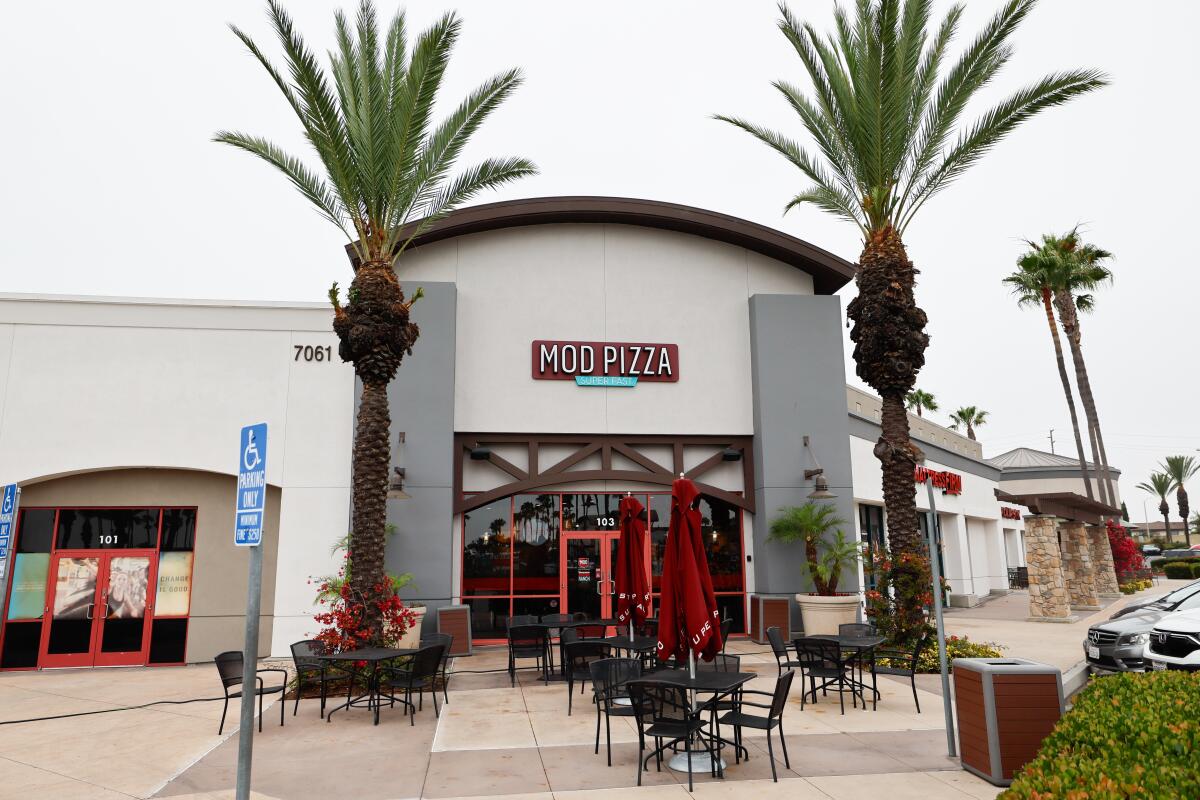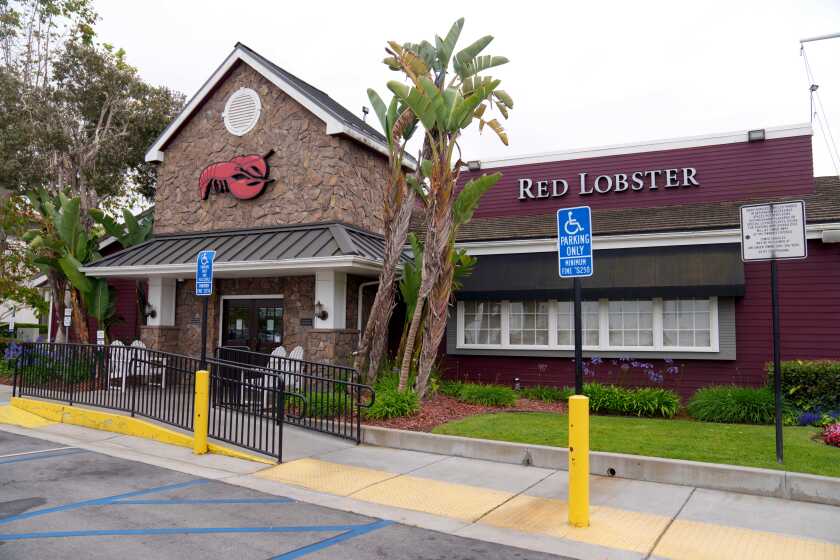Mod Pizza is ‘actively working’ to avoid bankruptcy filing as restaurants struggle

- Share via
Mod Pizza, a fast-casual restaurant chain with more than 40 locations in California, may soon file for bankruptcy after 16 years in business. The company could seek court protection as early as this week, Bloomberg reported recently.
The company’s plans have not been finalized and could change, a spokesperson for Mod said. “We are actively working toward strategic alternatives that would avoid a Chapter 11 filing,” he said. “We intend to provide further information in the near future.”
In a court filing, the Orlando, Fla.-based company said it has more than 100,000 creditors and between $1 billion and $10 billion in estimated liabilities.
Mod Pizza first opened in Seattle in 2008 and announced plans in 2021 for an initial public offering, but did not follow through on them. The privately held company, which currently operates more than 500 locations across the country, helped popularize a personalized approach to pizza, allowing customers to customize their pizzas with toppings and sauces of their choosing.
Mod is the latest in a string of restaurant chains to land in financial trouble this year amid rising inflation, high labor costs and a decrease in customer demand. The popular seafood chain Red Lobster filed for bankruptcy in May, and Rubio’s Coastal Grill did the same in June after closing nearly 50 locations.
In its bankruptcy filing, Red Lobster said its number of customers each year had dropped by nearly a third since 2019. The company also attributed its troubles to inflation and above-market rates for rent at several locations.
But Red Lobster wasn’t purely a victim of circumstance — experts say the chain’s 2023 Ultimate Endless Shrimp promotion contributed significantly to an operating loss of about $11 million in one quarter. The shrimp deal, which initially cost $20, didn’t lead to an increase in loyal customers or larger bills as the restaurant had hoped.
Rubio’s said the closures of several locations in June were due to the rising cost of doing business in the state. The closures came two months after a $20 hourly minimum wage requirement took effect for fast-food employees — an additional cost that restaurant owners have said makes staying afloat significantly more tenuous.
More to Read
Inside the business of entertainment
The Wide Shot brings you news, analysis and insights on everything from streaming wars to production — and what it all means for the future.
You may occasionally receive promotional content from the Los Angeles Times.












